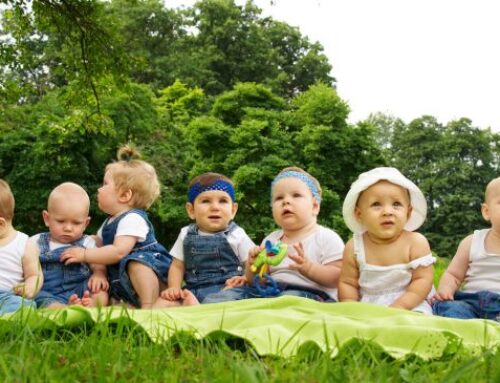| School enrolment figures in P.E.I. have dropped dramatically in recent years. Some rural schools are down more than 40 per cent and there are almost 25 per cent fewer students in Grades 1-3 than in 2001.
“The declines have come quicker and broader than expected. The drop in the younger grades is particularly worrisome,” says district superintendent Sandy MacDonald.
This demographic shift takes place at a time when there is also a demand for increased student achievement and more urgently needed resources, supports and programs. Conservative Premier Pat Binns, formerly a rural development officer, is strongly committed to the preservation and enhancement of rural Island life, and aware of how important local schools are to rural communities and their culture. He has always said he would not close any schools. “The government will keep its longstanding promise”, says Education Minister Mildred Dover. These developments are forcing adjustments in planning related to education. Stratford, Charlottetown’s rapidly growing neighbour, has been campaigning for a junior high school, but now there is a freeze on capital construction. (The freeze does not include the previously approved $1.5-million gymnasium for one rural school that now has only 84 students.) But a new French-language school has just opened, to accommodate 60 children in Grades 1-12. The $1.5 million previously committed to improvements in two other Francophone schools over the next five years will go ahead. Although Francophones are about 5 per cent of the provincial population, a parents’ group won a Supreme court case in 2000 that gave them their own superintendent, school board and schools. The falling numbers are affecting more than school enrolment figures. Bishop Raymond Lahey of Antigonish, N.S., president of the Atlantic Catholic Bishops’ Conference, told Pope Benedict XVI in May that lower birthrates and a population shift to other areas have forced reorganization and church closures. Other denominations have similar problems. An even bigger concern, Lahey said, is the disappearance of local cultures and the traditional life of small towns, which included an active participation in church life. Blake Doyle is the Charlottetown Guardian’s small business writer. Discussing the combined impact of declining enrolment and the current out-migration to Alberta, he says “this should be a wake-up call to the true labour shortage which will be occurring in the decades to come … This is not an issue for the ‘next generation’ to deal with.” A Guardian editorial called for “facing the hard questions,” like the implications for new school construction and the wisdom of keeping small schools open. “Those are surface concerns,” says Cynthia Chauncey. “The real ‘hard questions’ have to do with the causes of the declining numbers.” They are many. More couples opt to have no children at all. Others postpone pregnancy as long as possible. Infertility is increasing. Surgical abortions destroy large numbers of children worldwide; in Canada, that’s the equivalent of 100 classrooms a week. Chemical abortions destroy many more. Though perhaps not aware of the actual causes, Doyle points out that we will soon be “struggling with chronic and irreversible issues” if we do not take decisive corrective action. He adds, “Collectively, we have an obligation to collaborate on a solution. This is a responsibility which transcends politics and requires a holistic community approach.” Some have suggested propping up P.E.I.’s sagging school population by making a greater effort to attract immigrant families, but there will be increasing demand for those families across much of Canada, indeed the West. As Newsweek reported, “Never in the last 650 years, since the time of the Black Plague, have birth and fertility rates fallen so far, so fast, so low, for so long, in so many places.” The European Union nations already have high immigration rates to make up for their population stagnation. Many countries now try to encourage childbearing with incentives ranging from “speed dating,” to family-friendly policies, to tax incentives and cash payments. But Rev. Paul Marx, founder of Human Life International, has always claimed that when the reproduction rate drops below a threshold level, it can no longer be reversed. The results of these trends are only beginning to hit home, but many people do not make the cause-effect connection – and many who do would be unwilling to take the necessary “corrective action.” It remains to be seen if P.E.I. is willing to do address the real root cause – couples having fewer children – or merely other symptoms. |




